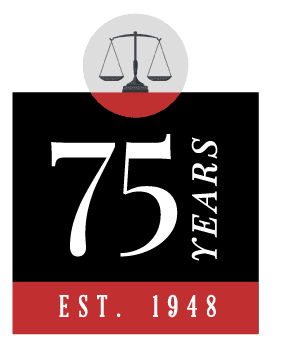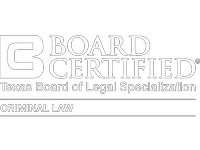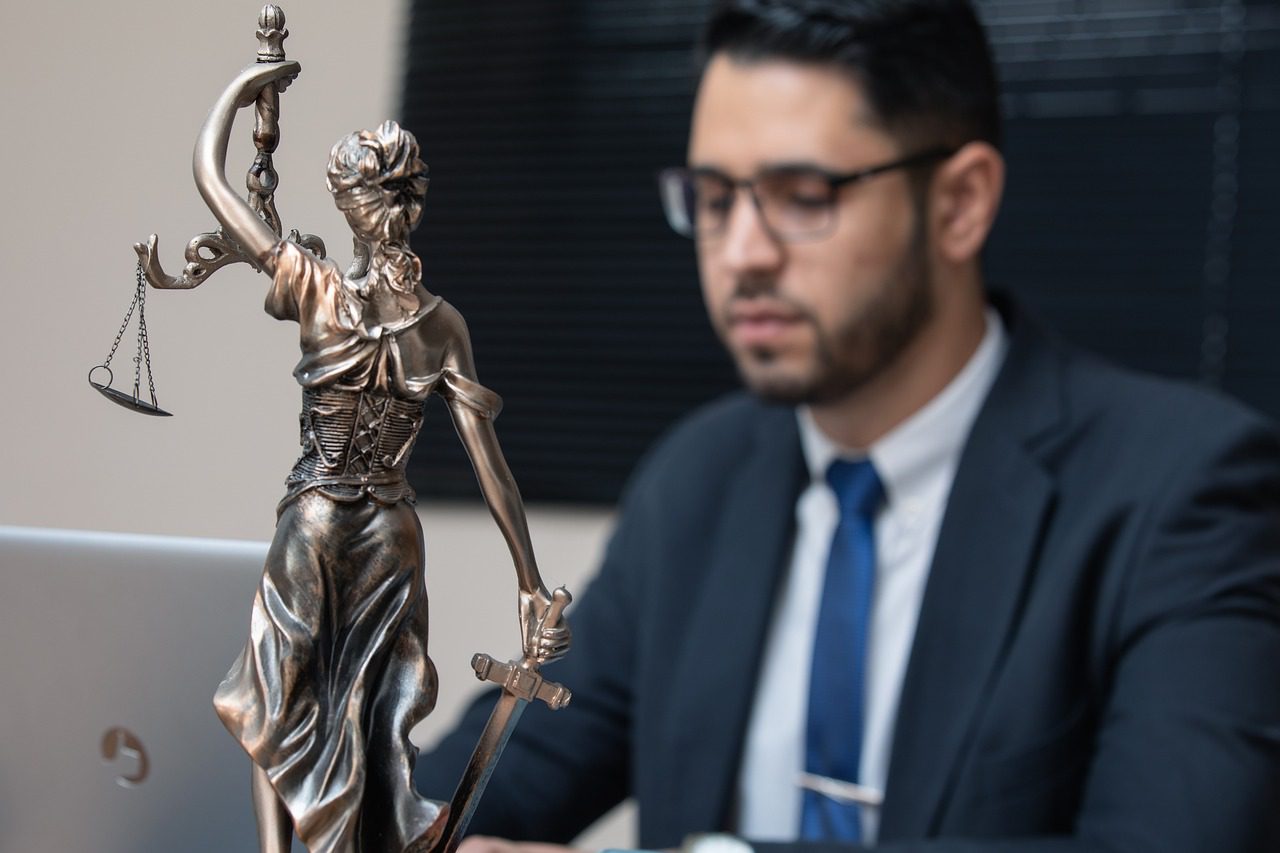After being charged with a crime, you have a lot at stake. Guilty or not, the way you conduct yourself and defend yourself during a criminal trial in Lubbock can determine whether your charges are reduced — or even dismissed.
Statistically, few cases are actually decided at trial, but you must work hard on your case from the beginning as if it is going to be resolved by a jury. You and your defense attorney are a team, and you have to have their back as much as they have yours in order to avoid negative outcomes in court.
Here are 10 guidelines to follow to be a good criminal defendant at trial and increase your chances of ending up with a successful outcome.
CHOOSE YOUR ATTORNEY WISELY
The attorney you hire can make or break your case. Criminal charges call for lawyers who specialize in criminal law. If they are certified in criminal law by the State Bar of Texas, this means they have specific extra training in criminal law and will be best prepared to stand trial for you.
When you first meet with your criminal attorney, make sure to come to an agreement on cost of services and whether you are able to afford the expenses related to your case. Inadequately funded criminal cases often lead to negative outcomes.
BE HONEST
It’s important to answer your criminal trial lawyer’s questions with 100 percent truth. Keep in mind that you have attorney-client privilege, which means your conversations are protected and that your lawyer has a duty to represent you to the best of their ability, regardless of your guilt or innocence. Withholding harmful evidence could affect the case. When your attorney has all the facts, they are able to prepare the best defense for you without fear of being blindsided by the prosecutor.
DISCUSS YOUR GOALS
Did you know that nearly 90 percent of criminal cases are settled prior to trial? Are you willing to accept a plea agreement, or not? Communicate what your wishes are to your attorney so they can shape your case to aim for a desired outcome.
Your attorney starts preparing for your case by reviewing the prosecution’s discovery and other evidence. Afterward, they will give you a rundown of the strength of the case against you, possible defenses and suggestions on strategy. If you have any questions about decision-making, ask the questions. Then ask again, until your goals and strategy are clear.
DO NOT TALK TO POLICE
Conversations with your attorney are confidential. The same cannot be said for the police. They are looking for any evidence they can to strengthen the prosecution’s case. If you have information to disclose, inform your attorney immediately and let them decide if or how to do so.
The same holds true for conversations you have in jail or on the streets. Prosecution frequently uses inmates or acquaintances as witnesses after defendants tell them unprivileged information, so it’s in your best interest to keep your lips sealed.
AVOID SOCIAL MEDIA
To reiterate, anything you say about your criminal case to anyone other than your attorney can be used against you in court. Especially if you tell the entire world on social media. It’s best to not post anything at all until your case is closed.
GATHER EVIDENCE QUICKLY
If your criminal trial lawyer asks for contact information for witnesses or other helpful information, give it to them as swiftly as possible so they can follow up — even if you are sure the potential witness does not want to testify. Your attorney could decide to subpoena the witness anyway if it may help the outcome of your criminal trial.
On the other hand, be careful who you add to your potential witness list. Anyone who could be unreliable on the stand could end up playing into the prosecutor’s hands.
PROVIDE MITIGATION EVIDENCE
Good criminal defense lawyers gather mitigation evidence, which may lessen the severity of your charges or culpability in a crime.
Positive information — involvement in kid’s activities, taking care of aging parents, military service, church attendance and volunteer activities — can make a big difference in a trial outcome.
Consider providing:
- Character references (ministers, teachers, coaches, scout leaders, employers)
- An updated resume with accomplishments and awards
- College and/or high school transcripts, if you’re a good student
- Other positive documents such as written commendations, military discharge documents, academic honors
- Family portraits of you and your kids
- Medical/psychological/substance abuse treatment records to show the effort you have put in to turn things around
BE ON TIME
Being a good criminal defendant includes being on time for every hearing, court date, etc. In fact, if you fail to show up, judges in Lubbock may choose to issue a warrant for your arrest.
DRESS RESPECTFULLY
Lubbock, Texas, courts have strict views on the kind of attire that is appropriate in the courtroom to maintain decorum, respect and a professional atmosphere.
- Sagging jeans or shorts
- Tank tops
- Sleeveless shirts
- Jeans with holes or cutouts
- “Message” shirts
- Hats, scarves, bandanas
- Sunglasses
- Thong or flip-flop sandals
When in doubt, dress as if you’re going to a job interview or church.
Also make sure to toss any food or drinks before entering the courtroom and turn off your cell phone. Loud or profane language is also prohibited.
FOLLOW YOUR ATTORNEY’S INSTRUCTIONS
Remember, you and your attorney are a team. A good team only works as well as its weakest player. If you don’t listen to the advice or instructions your attorney gives you, you may have to accept a poor outcome to your criminal trial.
At Chappell, Lanehart and Stangl, we are Lubbock criminal defense attorneys with the expertise to handle serious offenses. When you work with us, you benefit from our connections to the legal community.
We dedicate ourselves equally to each client. If you choose our firm to defend you in court, you can trust that we will use every strategy at our disposal to seek the best possible outcome for you.





